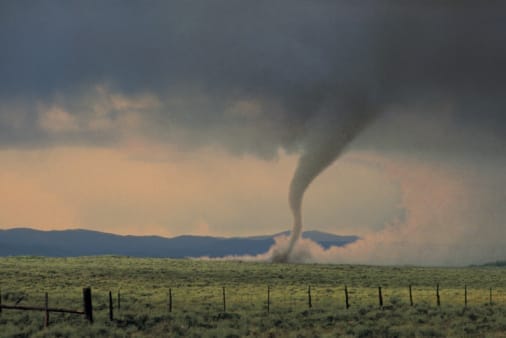The World Economic Forum (WEF) recently released the seventh edition of its Global Risks Report, the culmination of surveys of 469 leaders from government, business and academia. In this document, these experts share their opinions about 50 different risks. As the WEF’s academic partner, the Wharton Risk Center has not only been called on to share insights; leaders of the Center—Howard Kunreuther, the Center’s co-director, and the James G. Dinan Professor and professor of Decision Sciences and Business and Public Policy at the Wharton School, and Erwann Michel-Kerjan, the Center’s managing director and adjunct associate professor in the Operations and Information Management Department—have been called on by the media to help explain the findings of the 2012 Report.
Regarding those findings, the riskiest of risks identified by the report are “seeds of dystopia,” the brittle nature of the safeguards protecting our institutions and technological interconnectivity. Combined, these three risk “constellations” are a threat to global economic growth over the next 10 years, and intermingle with the specific threats of systemic financial failures, water and food supply crises, chronic fiscal imbalances, cyberattacks, rising greenhouse gases, and extreme commodity prices in the energy and agriculture sectors.
The report is not entirely doom and gloom. The WEF also polled its experts to gauge their confidence in the state of the world.

Howard Kunreuther
“Experts remained pessimistic about the state of the global economy and global governance over the last two quarters, yet are more optimistic about the state of global cooperation to address these risks,” the report’s authors stated.
This year’s report has attracted media attention, and Kunreuther and Michel-Kerjan have been featured in numerous publications.
“Economic Troubles Cited As the Top Risks in 2012” (New York Times): In this piece, both Kunreuther and Michel-Kerjan discuss the report and the first trillion-dollar disaster (Japan’s March 2011 earthquake).
“Counting the Cost of Calamities” (The Economist): Although this article in last week’s Economist doesn’t mention the WEF report in particular, the editors do talk with Wharton’s risk experts about why catastrophes appear to be getting more costly.
“Davos Warning” (CBC Toronto): Kunreuther addresses globalization and the results of interconnectedness in this video interview.
“What Are the Key Findings of the Global Risks Report?” (WEF): Michel-Kerjan discusses the main findings of the Global Risks 2012 report and their relevance to the private and public sectors.
These are but a few recent mentions of the Wharton Risk Center and the WEF report in the media.

Erwann O. Michel-Kerjan
The World Economic Forum “is an independent international organization committed to improving the state of the world by engaging business, political, academic and other leaders of society to shape global, regional and industry agendas,” as it describes itself. It releases its annual risk report before its annual meeting in Davos, Switzerland, from Jan. 25 to 29. Follow the link to download a copy of the 2012 Global Risks Report.

























